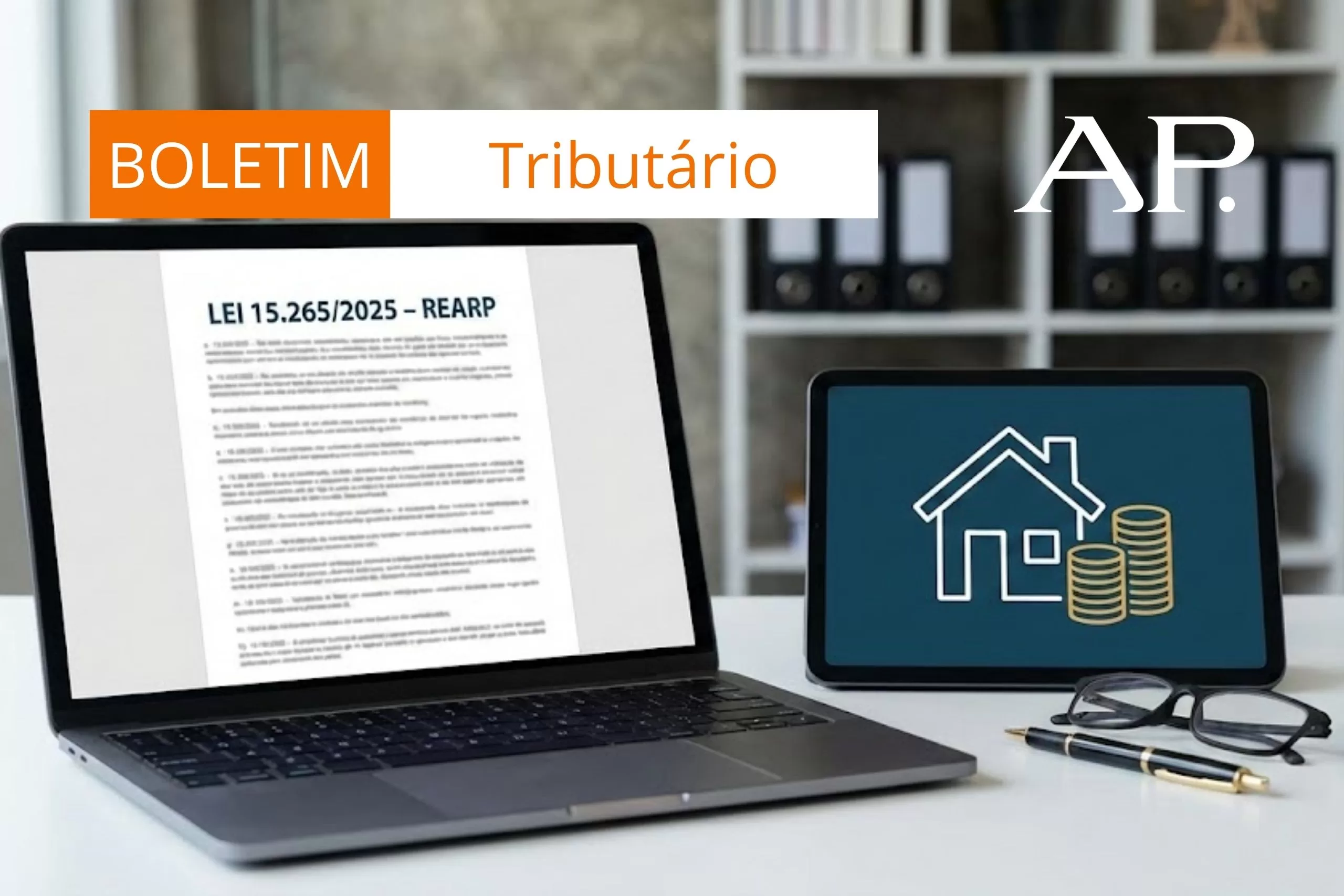Rearp: Update and Regularization of Assets – A strategic opportunity for reorganization and succession
Understand how the new law can reduce risks and bring legal certainty to your assets
Published in an extra edition of the DOU on 21/11/2025, Law 15.265/2025 instituted the Special Regime for Updating and Regularizing Assets (Rearp), with immediate effect for most of the provisions and, from 1/01/2026, for the rules on financial transactions (arts. 18 to 30 and arts. 33 and 34). The deadline for signing up is February 19, 2026, by submitting a single declaration and paying the tax in cash or in up to 36 monthly installments, plus interest at the Selic rate.
What has changed compared to the previous law
Rearp represents an advance on the updating of real estate provided for in Law 14.973/2024, which allowed for the correction of outdated values with favorable taxation. Now, the new regime broadens this concept to include movable property subject to registration and assets abroad, as well as authorizing migration to Rearp by taxpayers who have adhered to the previous regime. It also differs from the General RERCT, governed by the same Law No. 14,973/2024 and regulated by IN RFB No. 2,221/2024, aimed at regularizing assets held outside the country. With Rearp, regularization now covers assets and rights in Brazil and abroad, with a requirement to prove their lawful origin.
Among the assets covered are bank deposits, fund shares, policies, crypto-assets, real estate, vehicles, aircraft, vessels, equity holdings and intangible assets such as brands, patents and software. This breadth reinforces the need for detailed planning, since adherence will require adjustments to ancillary obligations, such as rectification of the DIRPF and GCAP.
Taxation, care and limits
For individuals, the updating of real estate and vehicles subject to registration, with a 4% tax on the difference between the declared value and the updated value, is an opportunity to reduce risks in inventories and succession planning. In practice, consider a property declared at R$500,000, but worth R$1 million: updating it using Rearp will mean paying R$20,000 in tax, ensuring transparency and avoiding future questions in inventories or partitions. On the other hand, it requires immediate disbursement and does not allow any reduction factor, which may discourage taxpayers with high assets.
Important: the sale of assets updated before five years (real estate) or two years (movable assets) invalidates the effects of the Rearp, imposing additional payment of capital gains tax.
Regularization of undeclared assets
Regularizing undeclared or misdeclared assets, on the other hand, imposes a significant cost: IR of 15% on the value and a fine of 100%. Although onerous, this option extinguishes punishability for crimes against the tax order, provided that the funds are of lawful origin and adherence occurs before the criminal decision has become final and unappealable.
In short, the program seeks to broaden the tax base and reduce litigation, but its effectiveness will depend on regulation by the Federal Revenue Service and the taxpayer’s ability to absorb high courses in a short period of time. For those seeking legal certainty and peace of mind when it comes to succession, Rearp is an important opportunity.
Araújo e Policastro Advogados is prepared to support individuals in adhering to the regime, assessing impacts, preparing declarations and ensuring compliance with IRS requirements. In the next newsletter, we’ll look at how companies can benefit from Rearp to strengthen governance and reduce tax risks.

